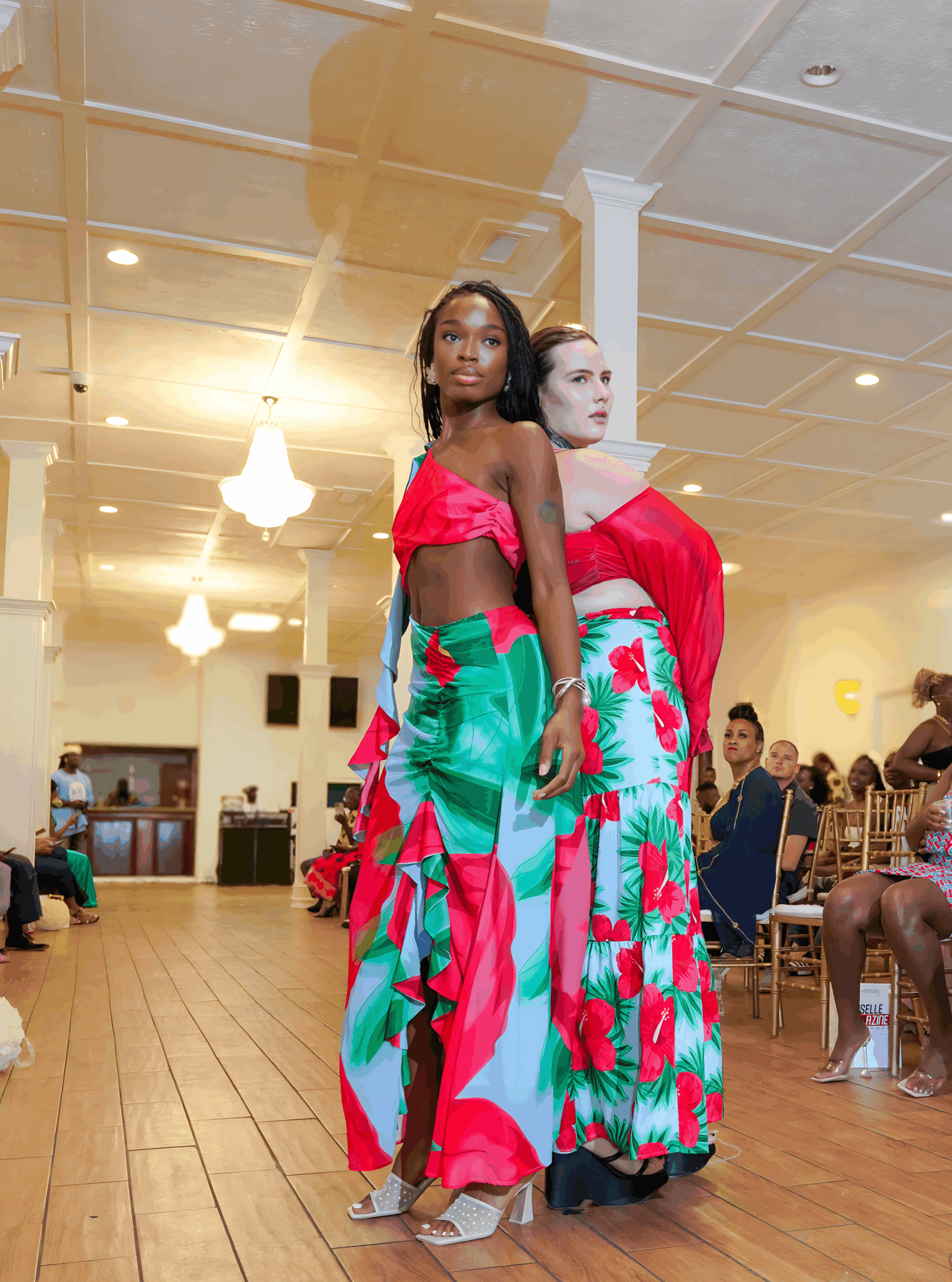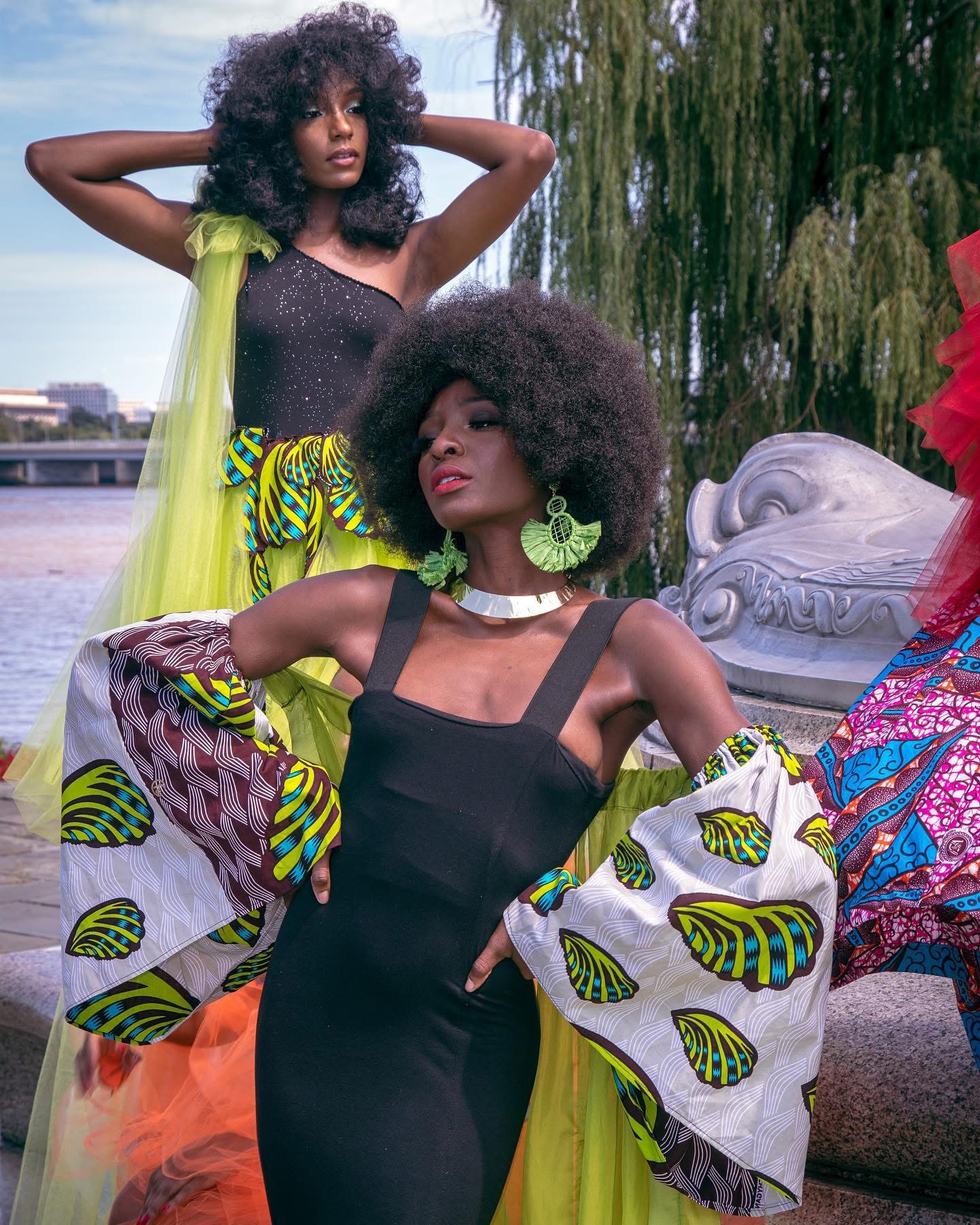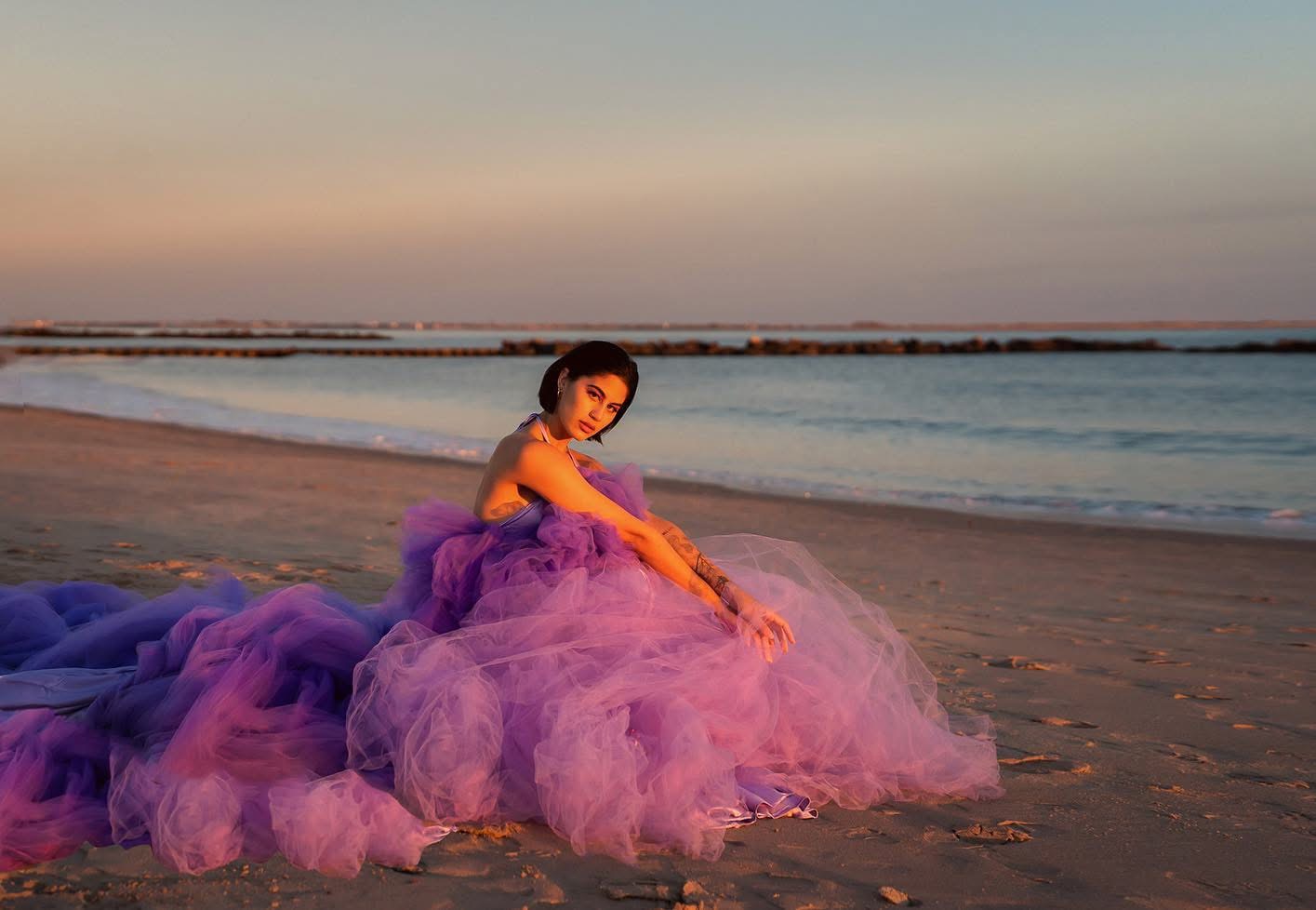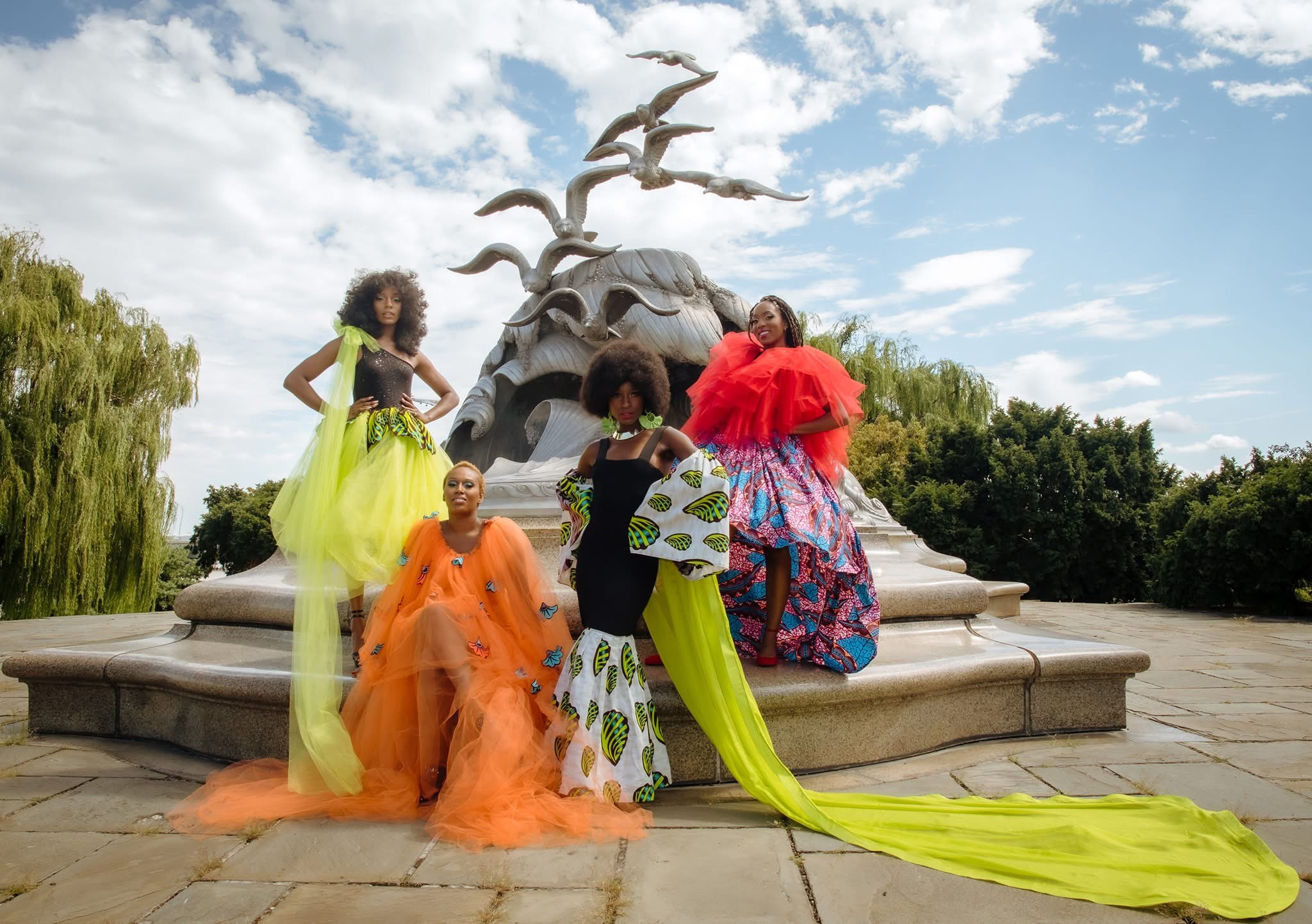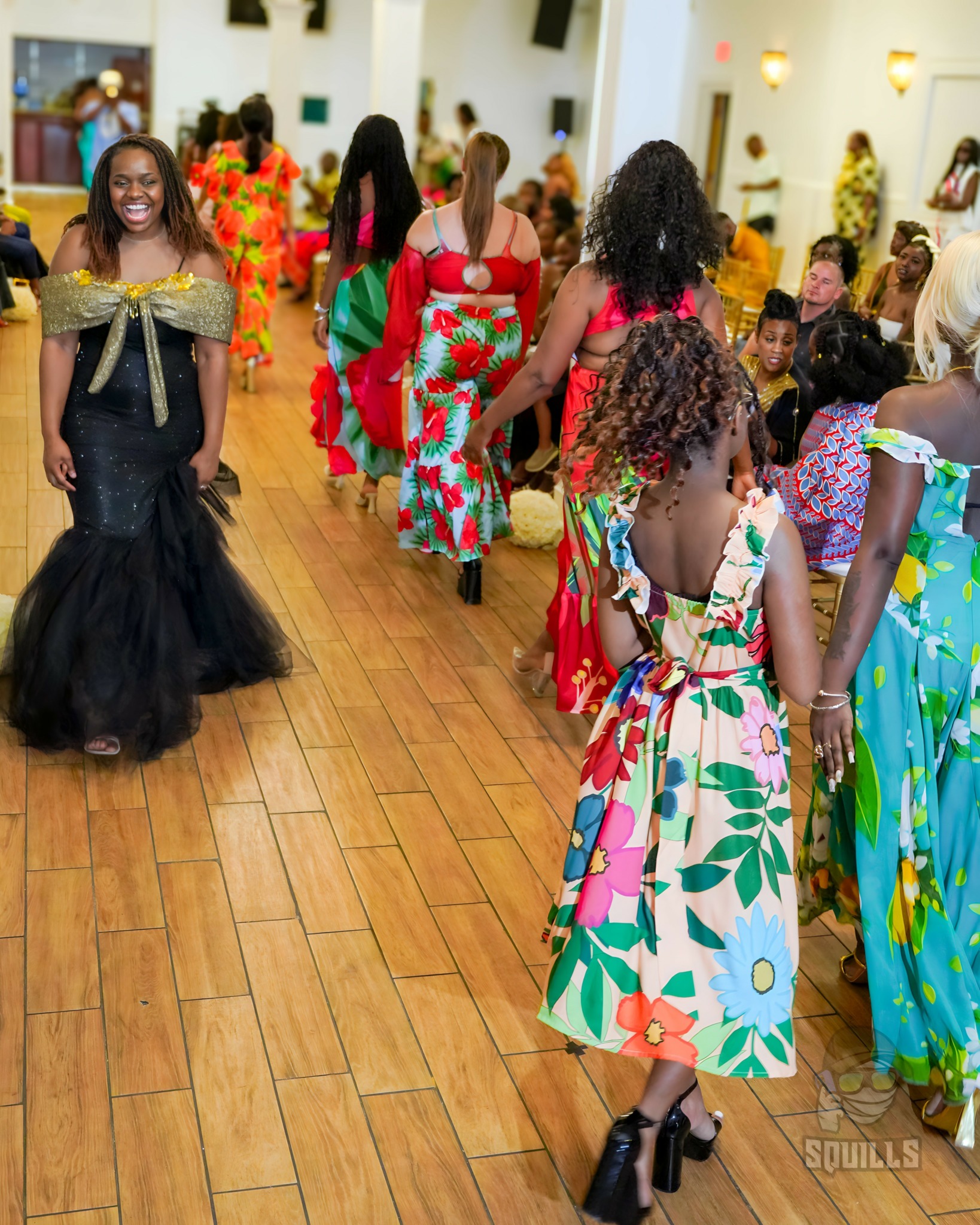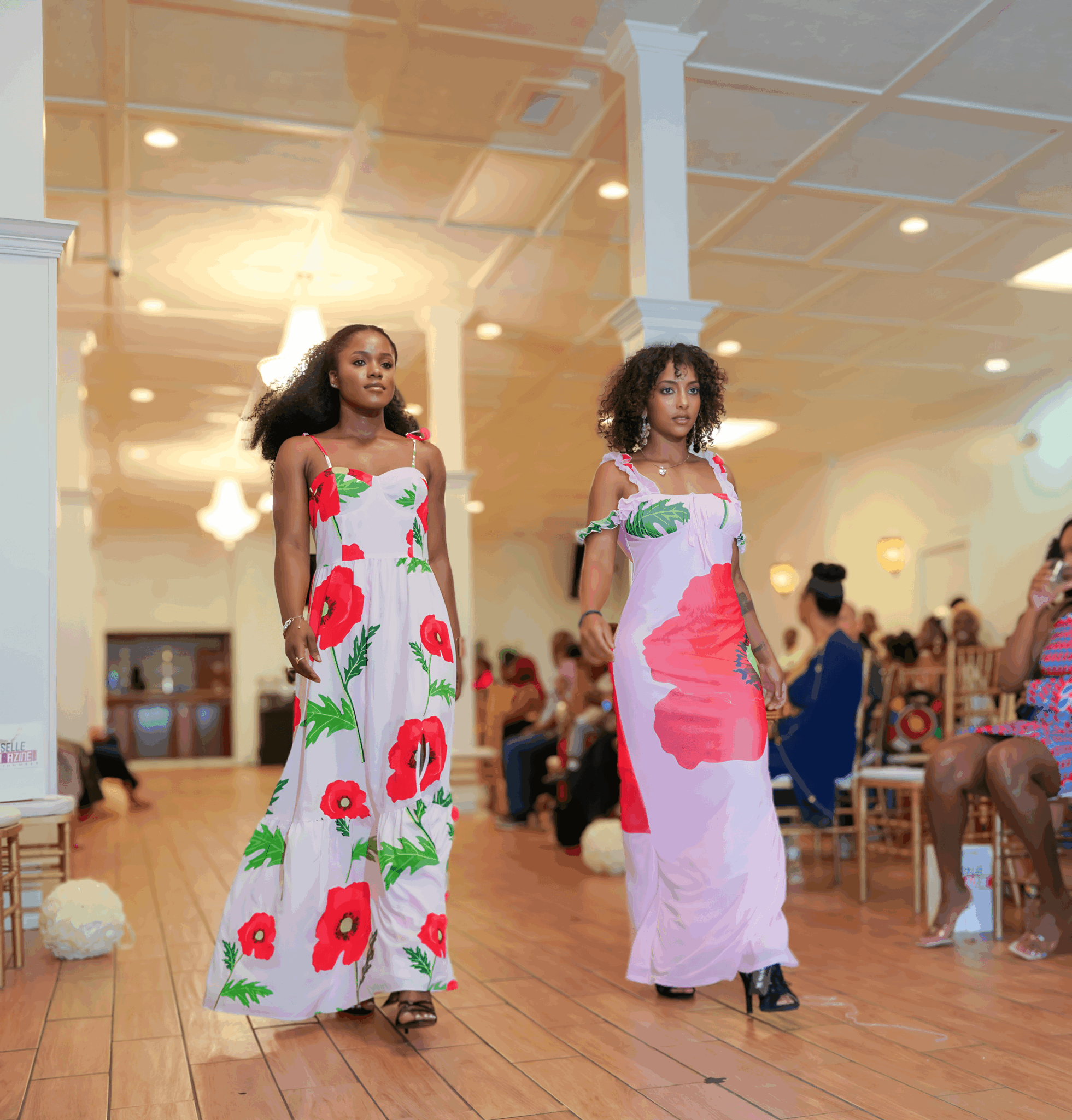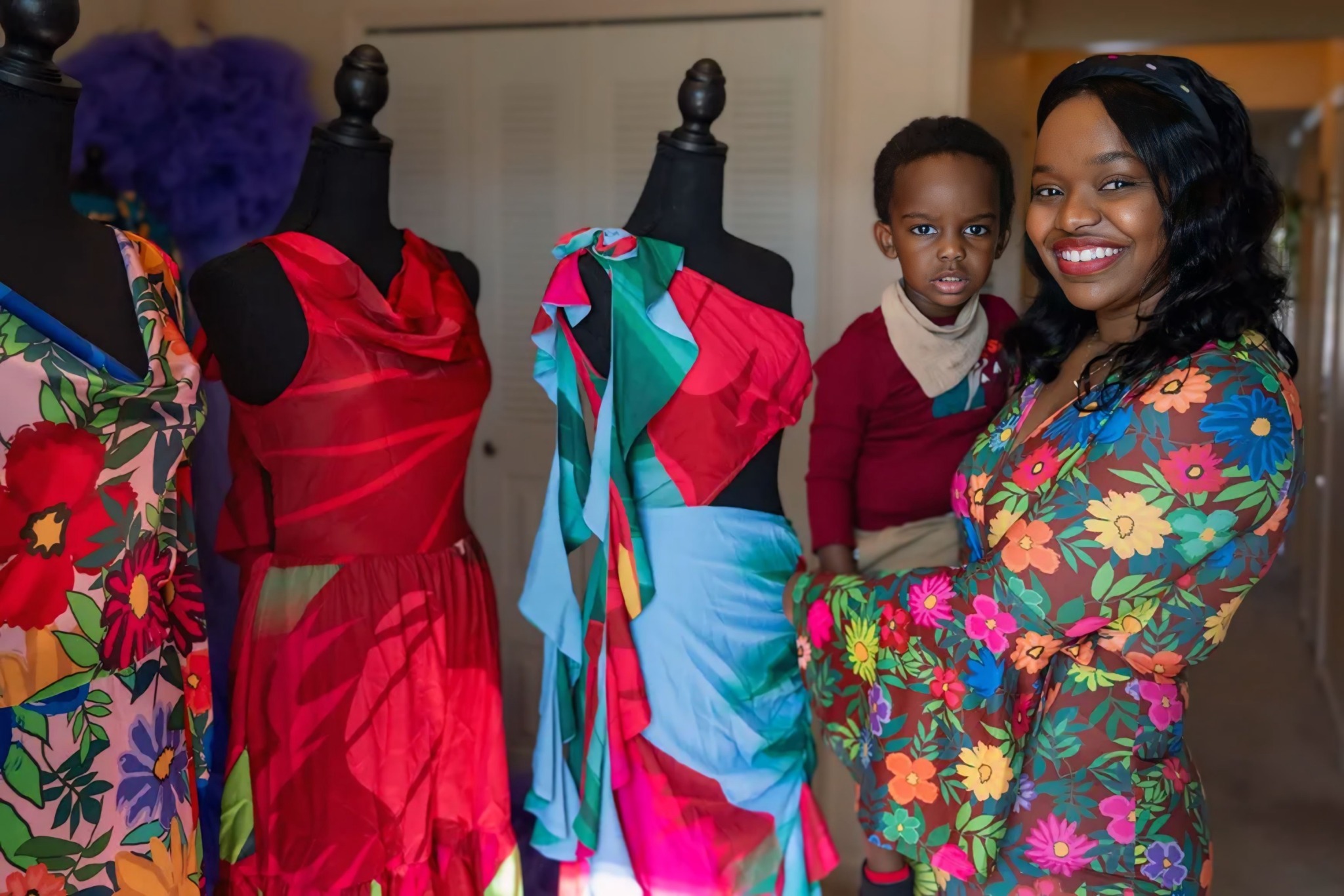We were lucky to catch up with Belange Mutunda recently and have shared our conversation below.
Belange, looking forward to hearing all of your stories today. So, let’s start with a hypothetical – what would you change about the educational system?
If I could change one thing about the education system, it would be to require all students, regardless of major, to take a foundational Business 101 course. As more graduates launch their own ventures, too many are entering entrepreneurship unprepared for the practical realities of running a business. This is especially true in creative fields like fashion, where students often leave with impressive fashion portfolios and passion for business but limited knowledge of how to turn their skills into sustainable enterprises. Many are never taught how to register a business, apply for an EIN, build credit, protect their intellectual property, or manage financial responsibilities, which are key to success in business. We need to stop separating “creative” education from “professional” preparation—because in today’s economy, the two are inseparable.
After launching my brand, Belange Handmade, I realized just how many of these steps I had to figure out on my own. Despite years of education, I was never taught the legal, financial, or operational basics of running a business—yet those are the very skills that determine long-term survival. This experience is real for many of my peers in the field, and it’s been documented both in the industry and academia. That disconnect in entrepreneurship education is what inspired me to return to school and pursue my PhD at Iowa State University, where my research focuses on fashion entrepreneurship education and how to make it more accessible to students across disciplines.
As an instructor, I’ve piloted a new experiential learning model in one of the courses I teach. My students act as branding consultants for a real clothing brand, contributing to its growth from the ground up. This hands-on structure has transformed the classroom and the positive feedback from students has been overwhelming as they find themselves more confident to apply theories in real world settings . Students ask deeper questions, take more ownership, and begin to see how the concepts they’re learning apply to real-world business decisions—not just assignments.
To truly prepare students for fulfilling careers, entrepreneurship education must move beyond electives and into the core curriculum. Foundational business knowledge, financial literacy, and access to mentorship should be part of every student’s journey. If we want students to thrive—not just graduate—we need to prepare them for the world they’re walking into, not the classroom they’re leaving behind.
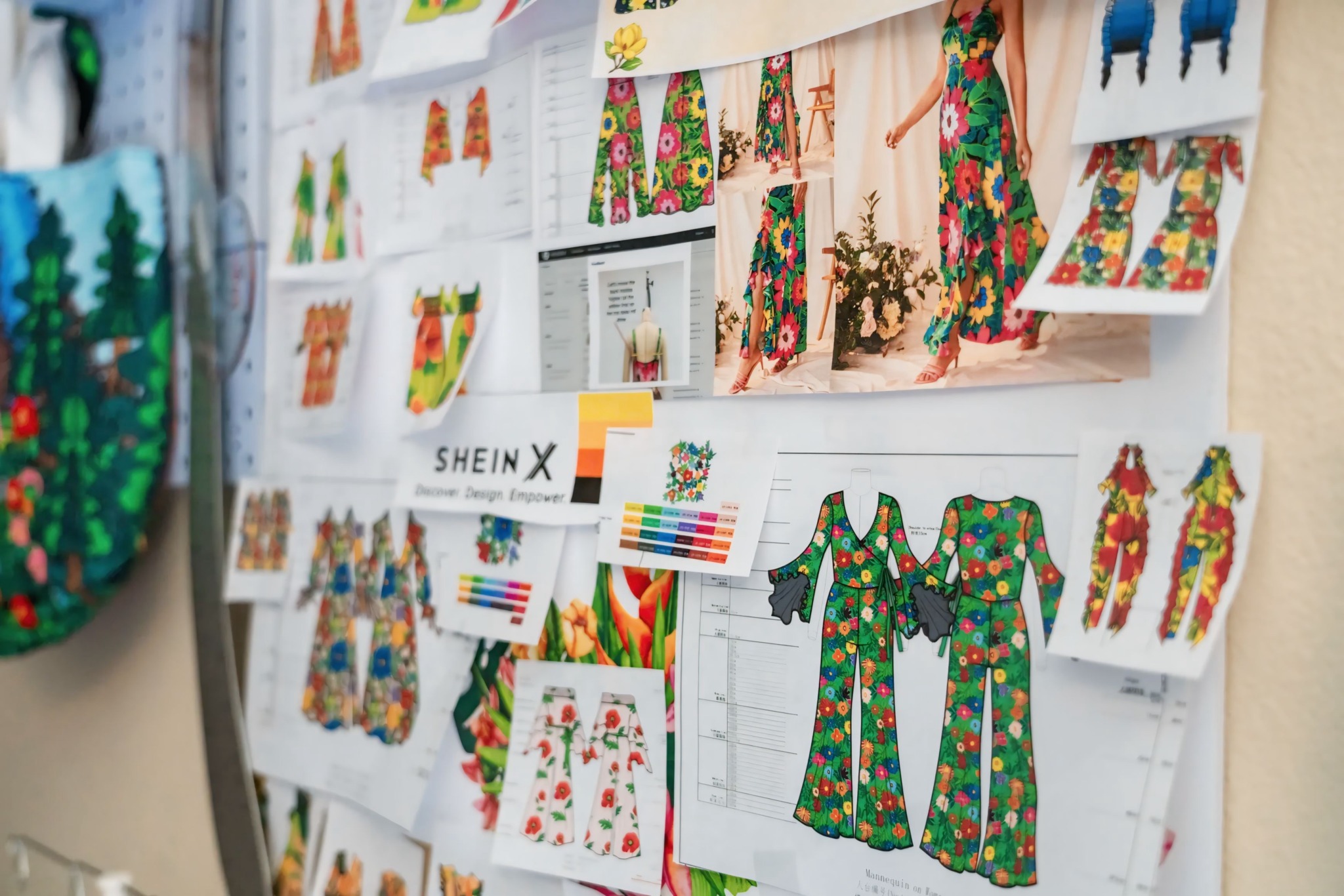
Belange, love having you share your insights with us. Before we ask you more questions, maybe you can take a moment to introduce yourself to our readers who might have missed our earlier conversations?
My name is Belange Mutunda, and I’m the founder, Creative Director and Fashion Designer of Belange Handmade, a fashion brand rooted in storytelling, culture, and craftsmanship. I was born and raised in the Democratic Republic of Congo, and my journey into fashion began with a deep love for sewing, self-expression, and handcraft in 2014. I started my brand at 17 in the Congo, with just $10 to my name whole balancing my last year of high school, and I’ve never looked back. I moved to the United States a decade ago to pursue my “American Dream” in fashion, and like many first-generation immigrants, I worked hard to build something from the ground up.
My work is driven by purpose. Belange Handmade is not just about creating beautiful garments—it’s about empowering women through fashion that makes them feel confident, visible, and celebrated. I specialize in custom eveningwear, handmade accessories, and statement pieces, and I also create educational tools and resources for emerging designers who want to launch or grow their own fashion businesses. I’ve been blessed to collaborate with global platforms like SHEIN through the SHEIN X incubator program, where my designs are now sold to women around the world—including back home in Congo.
What sets me apart is that I understand both the creative and business sides of fashion. I’ve worked in retail, studied fashion at the university level, taught design and branding, and launched collections under my own name. I know what it’s like to sew a gown in your living room—and I know what it’s like to have that gown featured on a global platform. That range of experience allows me to connect with clients, students, and collaborators in a real and relatable way.
One of the things I’m most proud of is how far I’ve come in my career and how much I have accomplished to date,. Today, I’m not only running my brand but also pursuing a PhD while raising my son. I teach college students, mentor aspiring designers, and develop tools that help others succeed without losing themselves in the process. I want people to know that you don’t have to wait for the perfect moment to pursue your calling. You can start where you are, use what you have, and build something meaningful.
At the heart of it all, Belange Handmade is about more than fashion. It’s about resilience, opportunity, and community.
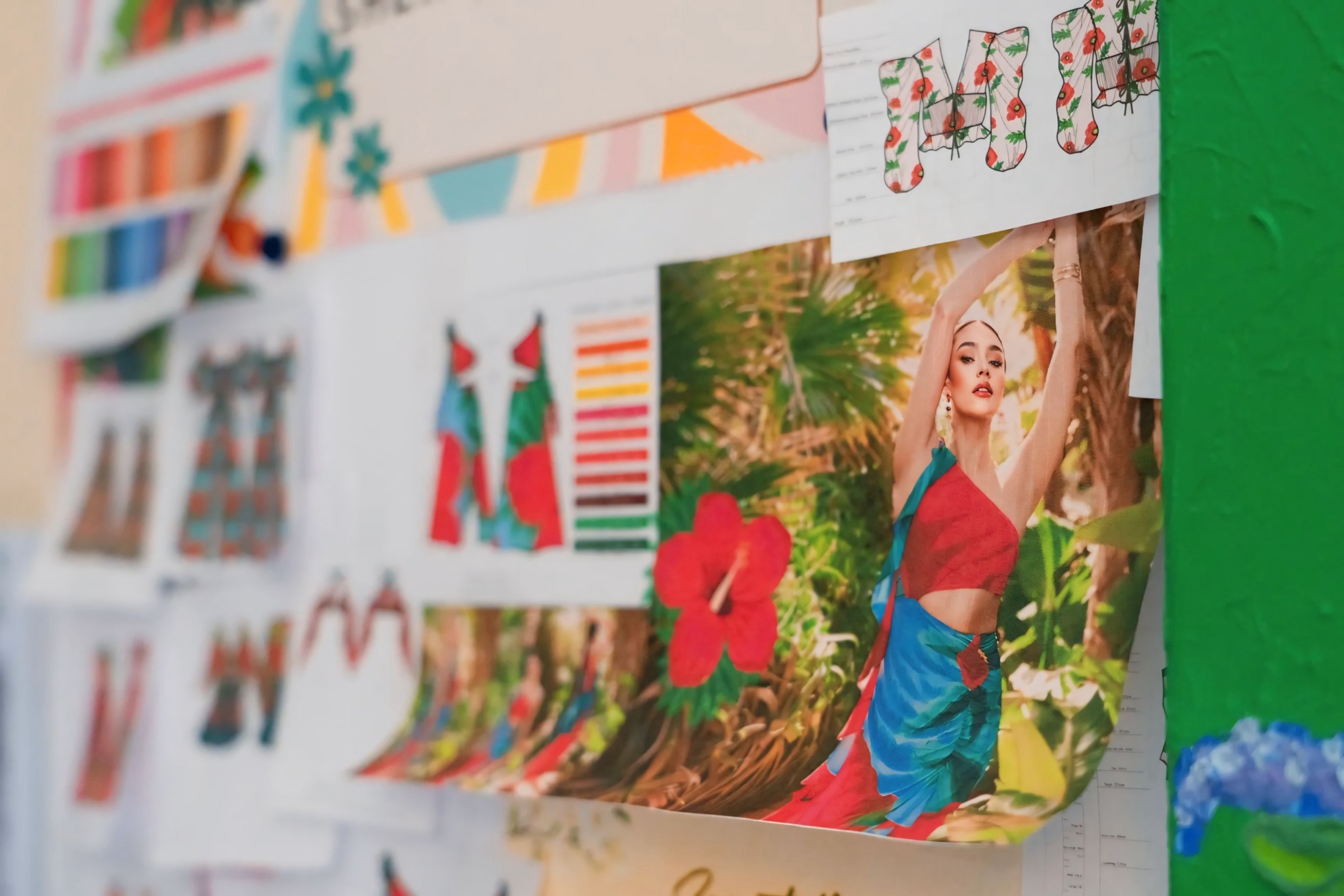
How about pivoting – can you share the story of a time you’ve had to pivot?
In Fall 2021, I hit a wall. I was burned out, creatively blocked, and emotionally drained. I had been designing nonstop for years, and for the first time, I didn’t feel inspired. So I decided to take a break from designing to give myself space to recover. Then, in early 2022, right after starting my Master’s program, I found out I was pregnant. It was a complicated pregnancy, and I physically couldn’t keep creating handmade products from scratch like I used to. This was the time fear and doubt starting creeping in and I thought my design career was over as I saw no way out.
That’s when I realized I needed to pivot. I happened to take a fashion licensing course during that time, which opened my eyes to a completely new model I had never fully understood. It gave me a clear understanding of how licensing works—from contracts to royalties—and I knew it was the direction I needed to take.
In early 2023, just a few months after I gave birth, I came across the SHEIN X Incubator Program online and I reached out to one of the coordinators as I was interested to be a part of the program. Things went super fast and I quickly was accepted into the program. I began licensing my designs through their platform and this opportunity completely transformed my business model because by Fall 2023 my first collection went live on SHEIN.com and sold globally for the first time. This opportunity gave me the freedom to create from anywhere while doing minimal work. Now, I create digital sketches and communicate design direction with SHEIN’s manufacturing team, who bring my pieces to life and distribute them globally.
At a time when I thought motherhood and burnout would end my career, it actually redirected me toward something bigger. Licensing gave me the ability to grow my business, reach a global audience, and still protect my creative energy and time as a new mom. It was one of the most unexpected and rewarding pivots I’ve ever made.
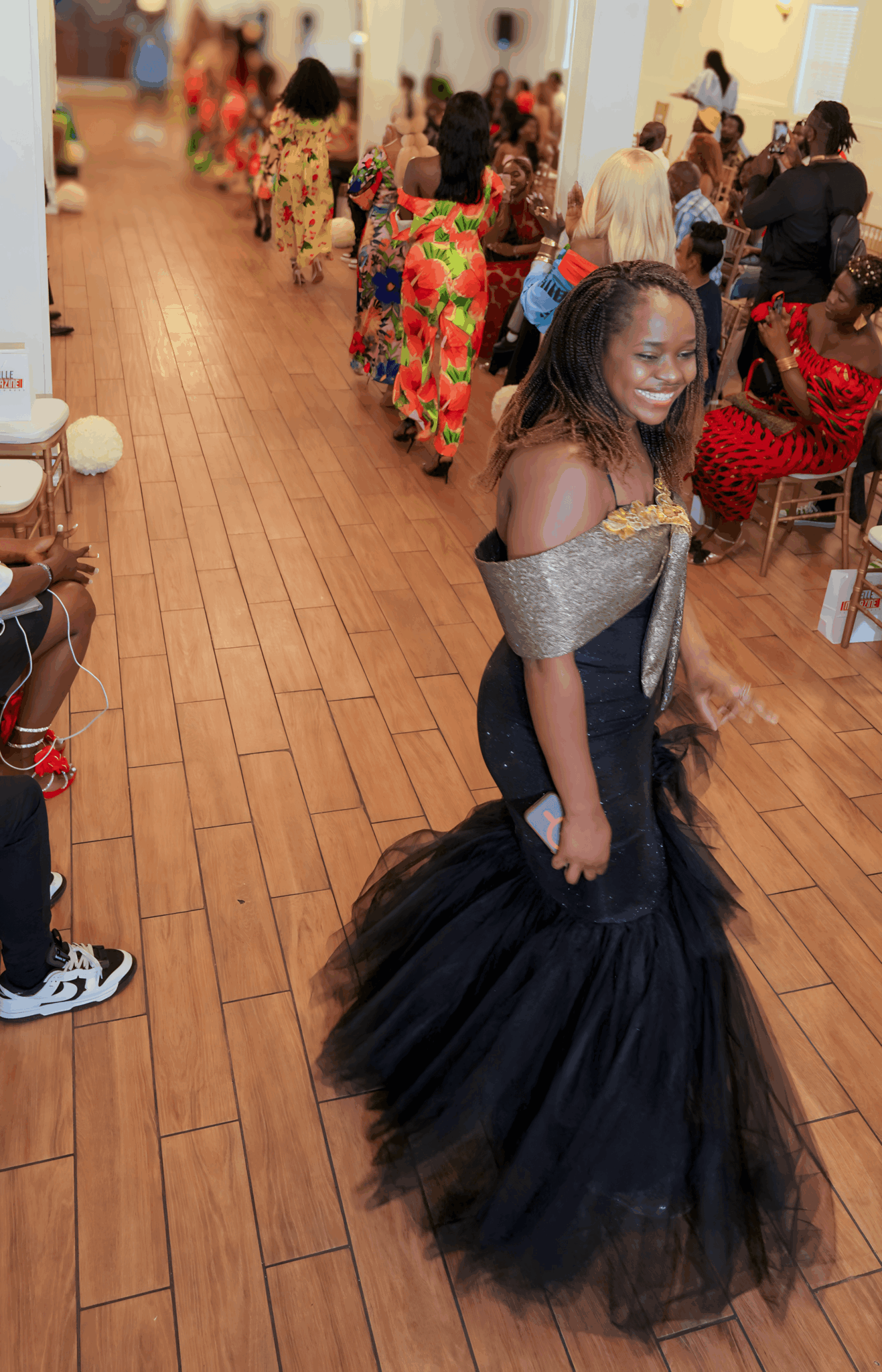
Okay – so how did you figure out the manufacturing part? Did you have prior experience?
When I first began my career, I made every piece myself by hand. Back then, my audience was small, and I could manage all the custom orders on my own. In the early days—especially while I was still in the Congo—getting raw materials and sewing supplies was extremely difficult, but I made it work with whatever I had. Things improved when I moved to the U.S., and I continued creating custom pieces for clients, especially prom and eveningwear.
However, as my brand grew, so did demand. By 2021, I knew I couldn’t keep up with custom orders alone, and I needed to transition into ready-to-wear (RTW) if I wanted to scale. That’s when I began exploring overseas manufacturing. I had some foundational knowledge of production, but I still had a lot to learn about timelines, quality control, and vendor communication.
My understanding of manufacturing deepened significantly once I joined the SHEIN X Incubator Program. Partnering with SHEIN gave me access to a full production pipeline—from tech packs to quality assurance—and helped me grasp what it takes to scale designs while maintaining brand identity. I no longer had to worry about sourcing materials or sewing every garment by hand. Instead, I focused on design, brand development, and creative direction.
One of the biggest lessons I’ve learned is that finding the right manufacturer is not just about pricing—it’s about trust, consistency, and clarity in communication. When you’re a small brand, it’s easy to get discouraged by high minimums or quality issues, but having a strong design process and clear brand identity helps you advocate for what you need.
Contact Info:
- Website: https://www.shopbhm.com
- Instagram: https://www.instagram.com/belange_handmade
- Facebook: https://www.facebook.com/belangehandmade/
- Linkedin: https://www.linkedin.com/in/belange-mutunda/
- Youtube: https://www.youtube.com/@belangehandmade
- Other: The direct link to shop my products on SHEIN is https://us.shein.com/designer/10001294
